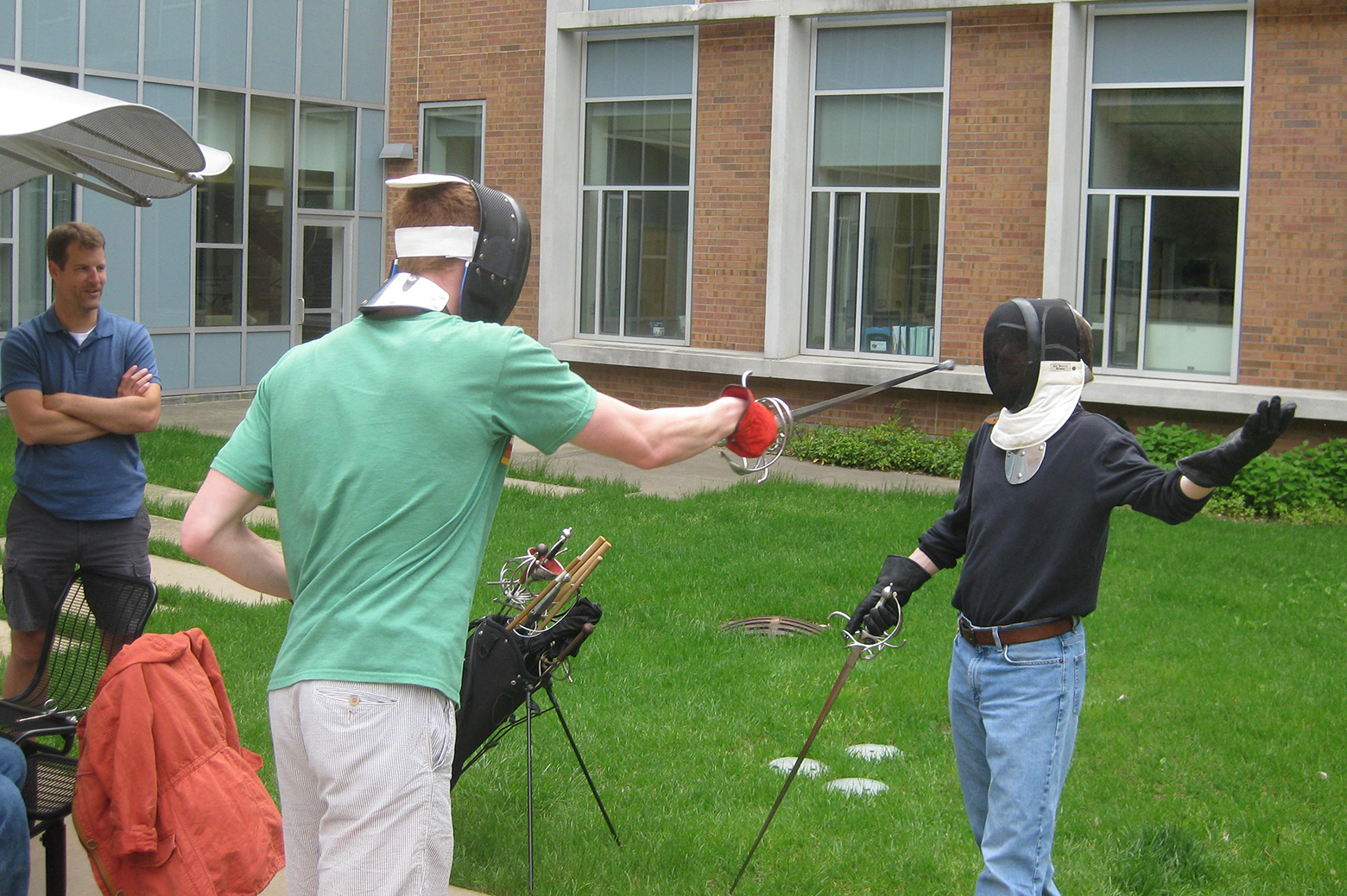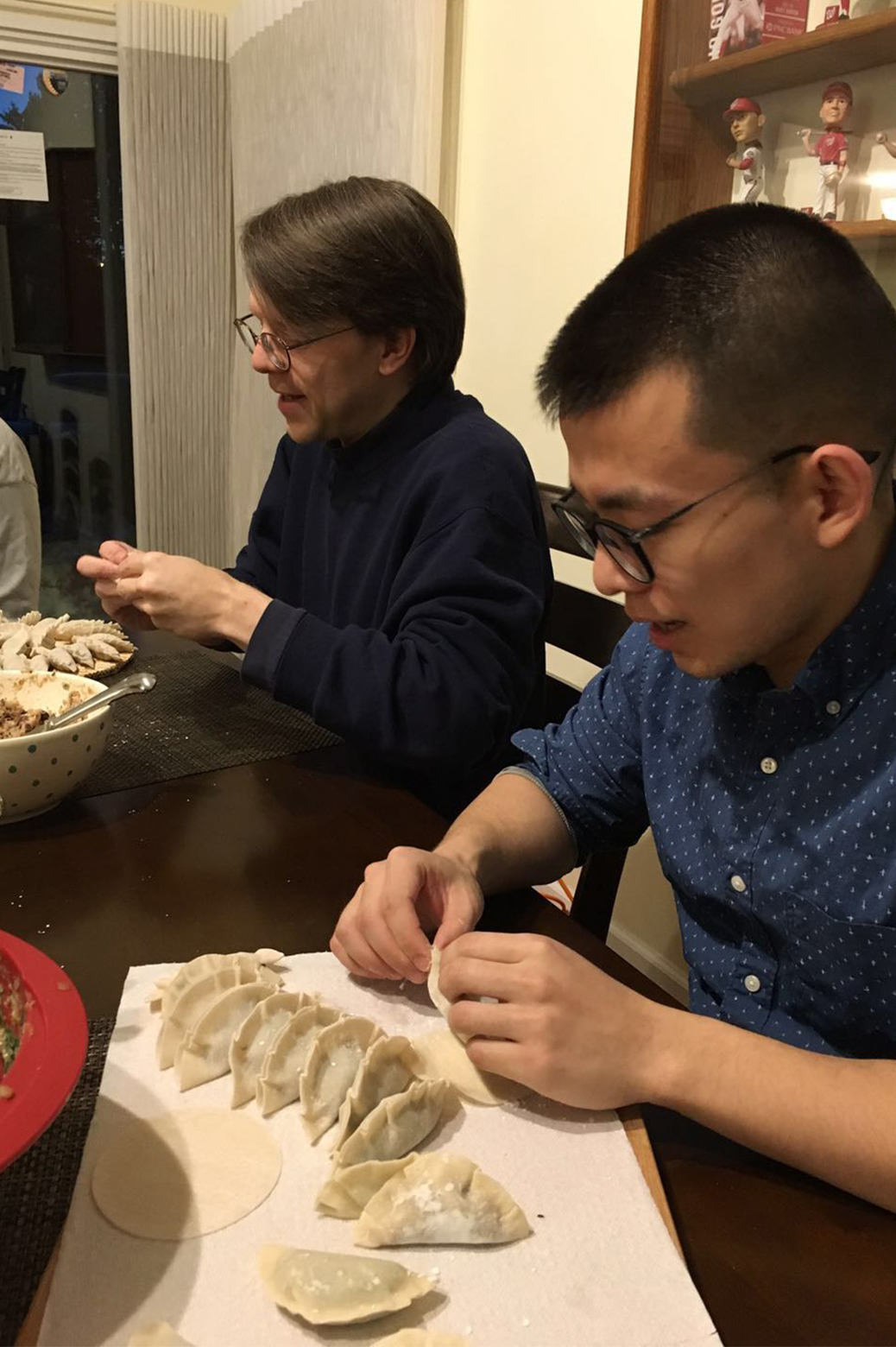Outstanding commitment to undergraduate mentorship
“Thanks to his tireless support and unparalleled patience, I am now equipped with a fundamental research skill set.”

 Enlarge
Enlarge
Prof. Westley Weimer has earned the Computing Research Association – Education (CRA-E) Undergraduate Research Faculty Mentoring Award for providing exceptional mentorship, undergraduate research experiences, and guidance on admission and matriculation to undergraduate students working in his research group. Weimer is one of only two recipients for 2019, along with CSE alumna Jennifer Rexford, the Gordon Y.S. Wu Professor at Princeton University.
Each year, Weimer includes undergraduate students in his research group and works with them in a focused approach. According to CRA-E, Weimer “provides mentoring and support in a manner similar to that given to a Ph.D. student.” He has had 18 undergraduate mentees in 10 years, and is known for his empathy in mentoring diverse student populations. His undergraduate mentees are often first authors on the papers that they co-author with Weimer.
“Prof. Weimer spent a tremendous amount of time teaching me the basics of conducting research,” says former undergraduate mentee Xinyu Liu. Weimer gave Liu introductory lessons in experimental design and formal scientific writing, and provided detailed feedback on his paper drafts each week they worked together.
“As a result,” Liu continued, “our well-polished paper was accepted to a top-tier conference and my formal English writing skill improved a lot. Thanks to his tireless support and unparalleled patience, I am now equipped with a fundamental research skill set.”

 Enlarge
Enlarge
In addition to the basics of conducting research, Weimer’s undergraduates are trained to communicate their research results and impact. To accomplish this, undergraduates get full participation in research presentations, meetings, and lab activities along with graduate students. His students have matriculated in Ph.D. programs at Cornell University, Stanford University, University of Wisconsin, and University of Michigan.
Ryan Krueger, an undergraduate who’s been with Weimer’s group for three semesters, described his time in the research group as his most meaningful academic experience at Michigan.
“It is difficult to articulate Wes’s care for his students, and it may be to the point where I almost take it for granted. First of all, he knows how to guide a willing student through the research process from the ground up. He understands points of confusion, has clear deadlines and expectations, and delegates the appropriate amount of responsibility given a student’s experience. As I have grown as a student, Wes has appropriately allowed me to grow as a researcher in his group.”
Outside the lab, Weimer works to keep the research group close-knit, Krueger says. Throughout both the school year and summer, Weimer provides weekly lunches for his students and holds small lessons on relevant topics. “These lessons are incredibly structured from week to week, and I do not know how he finds the time given all his other responsibilities as a professor,” said Krueger.
Weimer also organizes occasional dinners, movie nights, and game nights at different group member houses, offers fencing lessons during lunch, and keeps games around the grad student office. Most recently, the group made dumplings in celebration of the Chinese New Year.
The research group works to advance software quality through both static and dynamic programming language approaches. They are particularly concerned with automatic or minimally-guided techniques that can scale and be applied easily to large, existing programs. Their work helps programmers address defects, understand programs, and program correctly, with research spanning automated program repair, formal verification, program improvement, human studies, and language feature design.
Weimer’s work has led to over 11,000 citations, eight distinguished paper awards, four multi-conference research awards, and three ten-year most influential paper award.
“More importantly,” Liu says, “as my research mentor, he leads me to find the unique happiness of doing research, which will eternally inspire me in my lifelong research journey.”
“He is thoughtful, communicative, wildly intelligent, caring, and eager to help those under him achieve the same qualities,” concluded Ryan. “In all of this, he manages to maintain a hilarious sense of humor, and for that I cannot thank him enough!”
 MENU
MENU 
